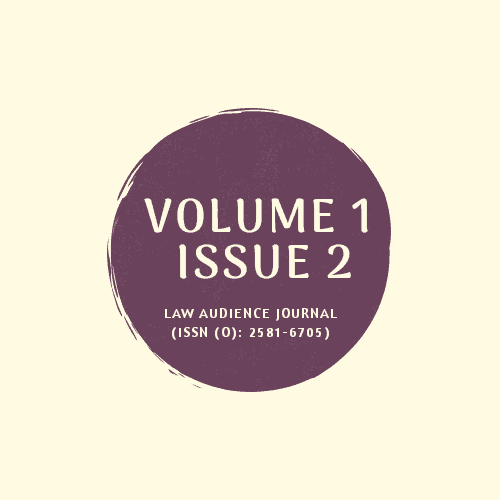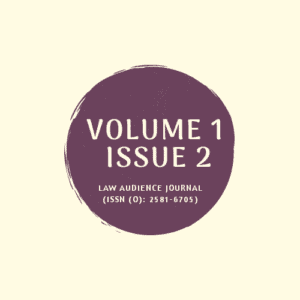AUTHORED BY: MS. DEEPA ANNADANIMATH, RESEARCH SCHOLAR AT DEPARTMENT OF LAW, SAVITRI BAI PUNE UNIVERSITY, PUNE.
1. INTRODUCTION:
Health is a Natural Phenomenon. Everyone is aware of the proverb “Health is Wealth”, it is essentially correct, and a Healthy person is always enthusiastic and positive towards their work. According to World Health Organisation, “Health is a state of complete physical, mental and social well-being and not merely the absence of disease or infirmity”.[1] This definition clearly depicts that Health includes physical as well as mental well-being and not only free from disease but to be fit as well. Health has a vital role in one’s Life. State being the protector of rights of its subjects in Social Welfare era, State is duty bound to protect the health of citizens as well. In this regard, almost all the countries have Legislations protecting Right to health.
2. THEORETICAL ASPECT:
According to the Social Contract Theory, citizens have given their rights to State, as State acts as a protector, guardian of its citizens. The Constitution of India is the law of land and even in its Preamble as well as in Part IV i.e., Directive Principles of State Policy clearly indicates that state is responsible for protecting fundamental rights of its citizens and as now we are in the social welfare era welfare of everyone is paramount. Hence State is duty bound to safeguard rights of its citizen[2].
3. INDIAN LEGAL PERSPECTIVE:
In the Indian context, we can see that in our Indian Constitution Article 21 Right to Life includes Right to Health. The Supreme Court held that the right to health is integral to the right to life and the government has a constitutional obligation to provide health facilities.[3] The Supreme Court held that Article 21 of the Constitution of India in relation to human rights has to be interpreted in conformity with international law.[4] The Supreme Court has held that the right to live with human dignity, enshrined in Article 21, derives from the directive principles of state policy and therefore includes protection of health.[5] From these Judicial Pronouncements, we get a clear idea that Right to health is a paramount right which has been considered by the Constitution, International Law and even state legislation needs to include the right of health in state policy as well.
4. MEANING AND DEFINITION OF FOOD ADULTERATION:
Food adulteration means anything adding or subtracting with food making it injurious to health. This adulteration may be done intentionally or unintentionally. An intentional adulteration is a criminal act and punishable offence.[6] This makes it clear that adulteration of food means a process in which the quality of food is lowered either by the addition of inferior quality material or by extracting of a valuable ingredient or made of sub-standard quality. Food Adulteration is generally done for profit motive either by the producers or manufacturers or by distributors.
Various types of adulterants found in the food products are as follows:
- Intentional adulterants; like colouring agents, starch, Pepper oil, injectable dyes and others.
- Incidental adulterants; like pesticide residues, larvae in foods, droppings of rodents.
- Metallic contaminants; like lead, arsenic, effluent from chemical industries etc.[7]
Legislation has constituted Authorities to check the adulteration of food. Previously it was Prevention of food adulteration Act, but in the Year 2006 Food Safety and Standard Authority of India, FDA is formed for this purpose, which is, in fact, responsible and indeed this Act forms authorities to check contamination of food. These bodies keep a check on and have given guidelines. All the packed food need to take certificate before the sale of such products, hence nowadays we see on all packed food FSSAI is printed on almost all the packed food items, which undoubtedly conveys that it is approved by the concerned authority.
5. MILK ADULTERATION:
This paper deals with only about milk products, now it is mandatory that even on packed milk products this FSSAI is to be mentioned on the sale of packed milk and milk products. Milk especially is such a product which is widely used and consumed by almost all, right from children of 2 years to senior citizens, it may be consumed in the form of milk directly or its by products such as curd, butter milk, cheese, paneer and so on. Milk is a basic consumption by every house hold in India. Therefore, if such a basic food is adulterated then what will be its implications on the health of consumers? It has been noticed in a report that milk is highly adulterated in the Northern States of India the percentage of adulterant also varies from place to place; in few of the places adulteration is more than 70%, which is really pathetic. However, some adulterants are too harmful to be overlooked. Some of the major adulterants in milk having serious adverse health effect are urea, formalin, detergents, ammonium sulphate, boric acid, caustic soda, benzoic acid, salicylic acid, hydrogen peroxide, sugars and melamine.[8]
6. REASONS FOR MILK ADULTERATION:
Amongst other reasons majorly adulteration is a tempting prospect for unscrupulous people who want to cut production costs and increase profit margins and financial gains, which is really pathetic as it is directly affecting the health of consumers.
7. EFFECTS OF CONSUMING ADULTERATED MILK:
Diluted and contaminated milk can impair the functioning of various organs in the human body. Heart problems, cancer and even death, can be caused by drinking adulterated milk.[9] The Indian Council of Medical Research, in one of its reports, states detergents cause food poisoning and gastro-intestinal complications. The other synthetic compounds impair the functioning of various organs of the body, cause heart problems, cancer, and sometimes death. The immediate effect of drinking adulterated milk containing urea, caustic soda and formalin is gastroenteritis, but the long term effects are known to be far more serious.[10]
8. JUDICIAL TRENDS:
There are various cases when the Judiciary has interpreted the provisions and held that the food adulteration especially milk adulteration is a crime and the persons involved are being held liable and judiciary has interpreted that milk adulteration is a crime against humanity as it is a basic food consumed by almost everyone. Few Cases to name, which are related to milk adulteration, are:
Municipal Committee, Amritsar v. Hazar Singh: A milk vendor was prosecuted for alleged adulteration, on the ground that there was a minimal shortfall in the percentage of “milk solids not fat” prescribed by the Prevention of Food Adulteration Rules[11].
State of Kerala v. Parameswaran Pillai Vasudevan: “The said sample does not conform to the standards prescribed for cow’s milk under the Prevention of Food Adulteration Rules, 1955 and is therefore adulterated.[12]
Ram Dass v. The State: It has been conclusively established in the case that the sample of the milk was taken from the shop of the applicant and was held that those who indulge in adulteration of food are parasites to the society.[13]
From these above-mentioned cases, it has become cleared that adulteration especially milk adulteration is considered to be one of the serious crimes against the society. In spite of laws and provisions these instances occurred which gave an alarm to the law-making authority to frame stringent laws. In this regard, the Law Commission of India, in its Report No. 264[14], has recommended life imprisonment for those convicted of manufacturing and selling adulterated food. It has, in this regard, presented the Criminal Law (Amendment) Bill, 2017, proposing to amend Sections 272 and 273 of the Indian Penal Code, and bringing it in line with the Food Act as well as the punishments prescribed by the IPC amendments made by Odisha, Uttar Pradesh and West Bengal.[15] These recommendations have to be taken note by the law-making authority and proper provisions need to be framed to see that such instances which are directly affecting the health of people are to be curbed. Recently in Pune, FDA inspection took place at few of the popular food joints and they reported that the standards prescribed by the law were not being followed by the restaurants. This also shows that from time to time food inspectors are investigating and visits the food joints to check the standards which are really appreciable as it is necessary for all right from the sales to final consumers, such inspections if done on regular basis then it will make consumers also vigilant and the food joints also try to implement the laws.
9. CONCLUSION:
Milk is a part and parcel of the diet of almost all, even it is considered as sacred in India. Milk adulteration is a process, where the quality of milk is lowered by the addition of an Inferior quality substance in it. From the above discussion it signifies that milk adulteration being a challenge to society, Law has looked upon it by framing necessary laws and appointing appropriate authorities to face that challenge. Even the people who are consumers should be alert and vigilant and need to co-ordinate with concerned authorities to curb milk adulteration. The government along with citizens together can handle this challenge smoothly if they work hand in hand.
[1]Available at https://www.who.int/about/mission/en/Seen on 9TH OCTOBER, 3.15pm.
[2] STEVEN J. HEYMAN*, THE FIRST DUTY OF GOVERNMENT:PROTECTION, LIBERTY AND THE FOURTEENTH AMENDMENT, Vol. 41:507. ,https://scholarship.law.duke.edu/cgi/viewcontent.cgi?article=3172&context=dlj.
[3]People’s Union for Civil Liberties v. Union of India (1997) 1 S.C.C. 301 (India).
.[4]State of Punjab v. Mohinder Singh Chawla (1997) 2 S.C.C. 83 (India).
[5]Id @4.
[6]Survey, PDF, FOOD ADULTRATION. Availablefrom:https://www.researchgate.net/publication/274383293_FOOD_ADULTRATION(accessed Oct 11 2018).
[7]Survey conducted by fssai, what is food adulteration? ,https://foodsafetyhelpline.com/2014/08/food-adulteration/(seen on 11th October 2018 11.45am).
[8]Tanzina Azad and Shoeb Ahmed “Common milk adulteration and their detection techniques, International Journal of food contamination 5thDec 2016, 3.22, Available@https://foodcontaminationjournal.biomedcentral.com/articles/10.1186/s40550-016-0045-3( accessed on 11th October 2018 2 12.42pm).
[9]Raymond Engineer, 70% of Indian’s Milk Products Violate Safety Standards available @https://www.thebetterindia.com/161639/adulterated-milk-check-home-news/ (last seen on 12thnovember 20183.00pm).
[10]Savya Soumya Misr, “Most Indians drinking adulterated milk, finds FSSAI Survey”, Down To Earth, available @https://www.downtoearth.org.in/news/most-indians-drinking-adulterated-milk-finds-fssai-survey—35646 (Last seen on 21ST November 2018).
[11]Municipal Committee, Amritsar v. Hazar Singh, A.I.R. 1975 (India).
[12]State of Kerala v. Parameswaran Pillai Vasudevan, A.I.R. 1974, (India).
[13] Ram Dass v. State, A.I.R. 1969 (India).
[14] The Criminal Law (Amendment) Bill, 2017 (Provisions dealing with Food Adulteration) Report No.264,available @http://lawcommissionofindia.nic.in/reports/Report264.pdf(last seen on 20thNovember2018,12.15pm).
[15]Dr.Farrukh Khan ,Food adulteration: A Menace to the Societyhttps://www.livelaw.in/law-commission-recommends-life-imprisonment-food-adulteration-read-report/.

